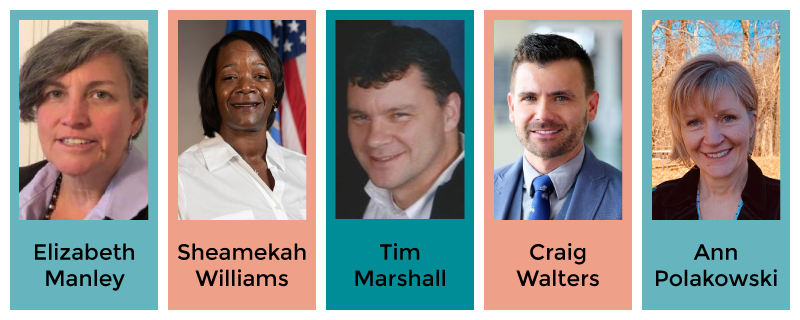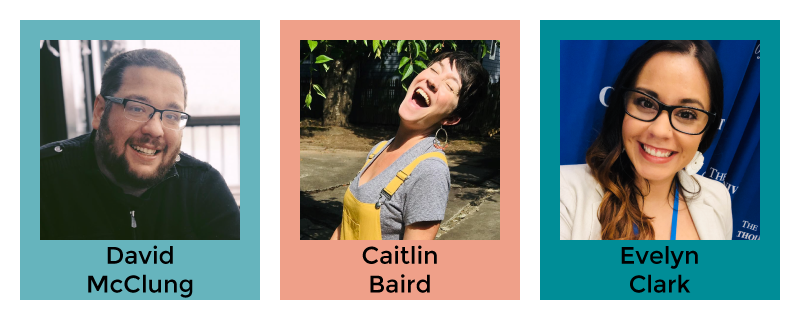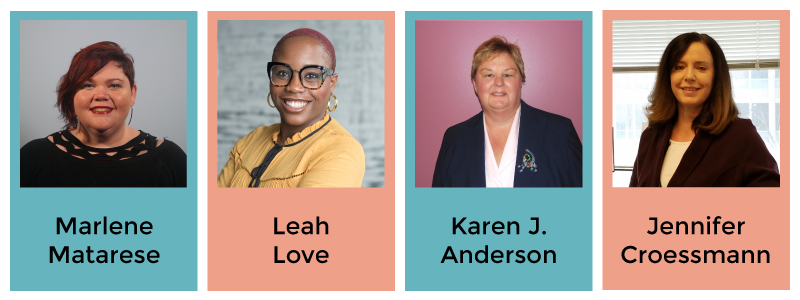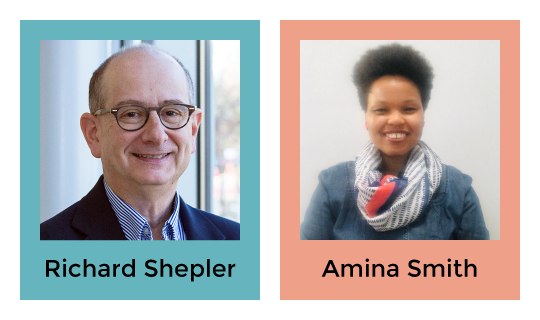
**Special Announcement**
The Training Institutes continues virtual workshops in July and August. In the first week of each month, four new FREE workshops will be available for you to access at your convenience ALL MONTH LONG. Learn on your schedule!
Training Institutes LIVE! workshops emphasize practical strategies that you can apply in your states, communities, tribes, and territories. Each workshop focuses on integrating services and improving outcomes for children, youth, young adults, and their families.
New workshops added the
first Thursday of every month!
July - August 2021
August 2021
Summer Workshop Series!
Join us for the Training Institutes LIVE!
Check out August Workshops!
Click the workshop title to learn more about each.
Implementing Mobile Response and Stabilization Services ▾

Elizabeth Manley, MSW, Clinical Instructor for Health and Behavioral Health Policy, The Institute for Innovation and Implementation
Sheamekah Williams, Director of Children, Youth and Family Services, Oklahoma Department of Mental Health and Substance Abuse
Tim Marshall, LCSW, Director of Community Mental Health, Connecticut Department of Children and Families
Craig Walters, MBA, Stabilization & Mobile Response Director, Utah Department of Human Services
Ann Polakowski, MSW, Clinical Program Manager II- Community Services, Nevada Department of Health & Human Services
Mobile response and stabilization services (MRSS) are provided to children and youth who are experiencing mental health emergencies and their families and are designed to defuse and stabilize crises and improve functioning. Drawing on the experiences of several states and localities, this workshop will illustrate the central role that MRSS plays in achieving quality and cost outcomes for children and youth with behavioral health challenges, including reduction in use of emergency rooms, psychiatric inpatient hospitals and residential treatment, reduction of placement disruptions in child welfare, and reduced involvement in juvenile justice. Presenters will describe essential components of an effective MRSS approach, and how these services are staffed, financed, and incorporated into Medicaid delivery systems. Data on results will also be presented.
Click here to access past recordings and PowerPoint presentations.
Strategies for Implementing and Expanding Effective Youth Peer Support Services ▾

David McClung, PhD, Youth Engagement Specialist, Texas Institute for Excellence in Mental Health, UT Austin
Caitlin Baird, Project Manager, Pathways to Positive Futures Regional Research Institute at Portland State University
Evelyn Clark, Change Specialist, Change Matrix
This workshop will focus on considerations and strategies for implementing effective peer support services for youth and young adults. As youth peer support services expand rapidly, it is critical to ensure that the services being provided are high quality, developmentally appropriate, and accessible to youth and young adults who need such support. Youth and young adults need peer services that enhance emotional competency, increase knowledge, promote a positive understanding of mental health, improve help-seeking behavior, and enhance the ability to establish trusting relationships. There are unique considerations for successfully integrating youth peer support services into the behavioral health service array. In order to bring effective peer support services to scale, the field must address the significant challenges involved in effectively implementing, expanding, and sustaining these services. During this workshop, presenters will share the experiences of established youth peer support programs and will provide strategies for implementation of similar programs in participants’ communities. Areas to be covered include organizational readiness; financing; quality; and workforce issues including training, supervision, and creating pathways for career mobility for youth peer providers.
Click here to access past recordings and PowerPoint presentations.
A Culture & Practice Change Effort Around Serving LGBTQ+ Youth and their Families ▾


Marlene Matarese, PhD, MSW, Deputy Director, Clinical Associate Professor, University of Maryland School of Social Work, The Institution of Implementation and Innovation
Leah Love, LSW, MSW, Youth Acceptance Project Clinician, Kinnect
Karen J. Anderson, LISW-S, Special Projects Coordinator, Cuyahoga County Division of Children and Family Services
Jennifer Croessmann, LISW, Special Projects Coordinator, Cuyahoga County Division of Children and Family Services
Elizabeth J. Greeno, PhD, LCSW-C, Research Associate Professor, University of Maryland School of Social Work, The Institution of Implementation and Innovation
Kori Sewell, BA, Case Review Supervisor, Cuyahoga County Division of Children and Family Services
Jennifer Wenderoth, LISW-S, Chosen Affirming Family Program Director, Kinnect
Cuyahoga County will present the culmination of their work serving LGBTQ+ youth and families. The county will present its strategies for safely identifying LGBTQ+ youth and how they went from identifying only 3% of their LGBTQ+ youth in 2017, to finding out that 32% identified as LGBTQ+ in 2019. The presenters will also discuss their innovative approach to supporting staff during their culture shift, which has resulted in them having waiting lists for their LGBTQ+ specific services. The panelists will also include practitioners who will share their stories of impact from working with these young people and their families.
Click here to access past recordings and PowerPoint presentations.
Implementing Intensive Home-Based Treatment ▾

Richard Shepler, PhD, LPCC-S, Director, Center for Innovative Practices, Case Western Reserve University
Amina Smith, LPC, Evidence-Based Practices Program Manager, DC Department Of Behavioral Health
This workshop will focus on intensive home-based treatment and will present standards this service that were developed in collaboration with CWRU, the University of Washington, the TA Network, the Yale Child Study Center, and the Children’s Behavioral Health Knowledge Center, Massachusetts Department of Mental Health. The Intensive Home-Based Treatment (IHBT) Program and Practice Standards were designed to facilitate enhanced consistency of IHBT service delivery across states and providers. The IHBT Program Standards include the following areas: staffing and workforce development; IHBT program components; IHBT quality and accountability mechanisms; organizational supports; and IHBT supervision and oversight. The IHBT Practice Standards address the following clinical practice areas: engagement; risk identification, safety planning, and crisis response; assessment, clinical conceptualization, and treatment planning; comprehensive treatment; cross-system collaboration, care coordination, and advocacy; developmental asset and resilience promotion, and functional supports; and transition planning. Presenters will describe the full program and practice standards and will describe how they can be applied by providers to ensure the effectiveness of these services.


